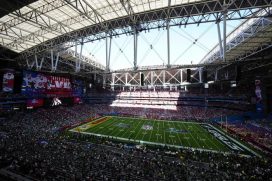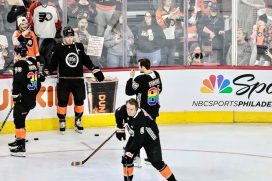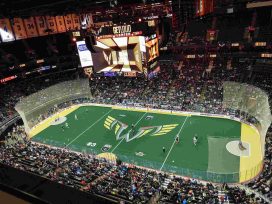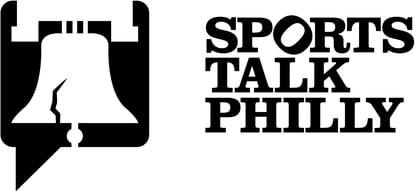Posted by Mike Frohwirth
Even without All-Stars Chase Utley and Ryan Howard available, the Phillies are still a formidable team, and a playoff contender. Their starting rotation may very well be the best in the National League. Their bullpen is more than serviceable, their defense is above average, and Messrs. Shane Victorino and Hunter Pence are two excellent offensive weapons.
What's missing from previous seasons is a large margin for error. The team was once strong enough to overcome Manager Charlie Manuel's "eccentricities" (See also, lack of strategic ability.), just as Ron Washington's Texas Rangers are currently able to frequently overcome their manager's shortcomings. The 2012 Philadelphia Phillies need a manager who is a force for good, or at least a force for neutrality. So far, Manuel's inability to adhere to the basic tenets of baseball management have proven quite damaging to the Phillies' winning percentage. It is, obviously, very early in the season, but if Manuel continues to repeat his mistakes of the season's first three games, the Phillies may be hard-pressed to make the playoffs.
Maximizing run expectancy
- Construct an effective lineup. Shane Victorino might be the best hitter in the Phillies' lineup. At worst, he is the second best hitter in the lineup. It is in the Phillies' best offensive interests to provide Victorino with as many plate appearances as possible. Batting Victorino in the 5th spot does not achieve this.
- Conversely, Juan Pierre is not a good offensive player. His .293 wOBA in 2011 (MLB average: .317) is a testament to his inability to help a team at the plate. Pierre's defense in left field (Note: LF is his only position, as he lacks the arm for RF, and it is best to avoid the circuitous routes he utilizes as a CF. Also note that he is not particularly adept in LF.) is below average. If you illogically choose to put Juan Pierre in your starting lineup, he should at least be positioned near the end of the batting order, so as to minimize the adverse effects his bat has on an offense.
- When to sacrifice bunt, and when not to sacrifice bunt? This is actually a pretty easy to answer, as we have more than a century's worth of data with which to examine the bunt/not bunt question. Basically, sacrifice bunting is viable in the bottom of the ninth inning (or the bottom of a later inning), when a single run scored wins the game. Sacrifice bunting with a pitcher, or a position player with a pitcher's batting ability (ex. Freddy Galvis, Michael Martinez), may not be the worst move. Sacrifice bunting with an average, or better, position player only serves to reduce the expected number of runs scored. Sacrifice bunting with one of your best hitters (Victorino, Jimmy Rollins), or sacrifice bunting a runner from second-to-third with no outs (runner would likely score from second on a single), these maneuvers are just highly illogical. See here for more on the "when to sacrifice bunt" question.
Minimizing your opponent's run expectancy
Charlie Manuel has an inherent advantage in this area, namely the Phillies' outstanding starting rotation. Most of the work Manuel has to do in this area is to effectively manage his bullpen. Unfortunately, he has not done so, and the poor performance of the offense has made his relief mistakes all the more glaring.
- Use your best relievers in the highest leverage situations. There is no question that Jonathan Papelbon is one of the best relievers in MLB. His statistics have been consistently outstanding. When the Phillies need an out late in a game, Papelbon is their best-equipped option to get that out. Despite this obvious fact, Manuel allowed the Pirates to win two games in walk-off fashion this weekend, as Papelbon observed from the bullpen. It's one thing to lose with your best players, but losing while your best players are not utilized, that's just unconscionable.
- Kyle Kendrick is not a very good MLB pitcher. His inability to strike out opposing batters (4.63 K/9 in 2011) causes him to rely on the vagaries of fate, on luck with batted balls, for success. Some seasons he is lucky (2011: .261 BABIP, 3.22 ERA), in other seasons he only has neutral luck (2009: .305 BABIP, 5.49 ERA). This reliance on good fortune means Kendrick is miscast as a high-leverage short reliever. With the bullpen's current construction, Kendrick's best role is long relief, as he has the ability to pitch multiple innings (though not particularly well, unless the odds are in his favor). Despite these facts, Manuel has used Kendrick in high leverage short relief in the past two games.
- Joe Savery does not really belong in a major league bullpen, at least at this point in time. He will likely be returned to AAA when Jose Contreras is ready to return to MLB. Savery is in MLB right now for pretty much one reason: his left-handedness. Savery is not someone you want pitching in high leverage short relief right now, but with a single left-handed bat to retire, particularly in the 6th or 7th inning, Savery should be under consideration to LOOGY the Phillies out of a troublesome situation. Savery has not pitched yet this season. If Manuel is not confident enough to use Savery for a single left-handed batter, he should be replaced with a pitcher that Manuel will use, or with an additional position player (to provide the bench with more PR/PH flexibility).
Put your players in a position to succeed.
- Laynce Nix has not been called upon to sacrifice bunt often in his career. Asking Nix to sacrifice in a crucial situation is not a prudent decision, yet Manuel asked Nix to do so in Sunday's game. If Manuel is certain that sacrifice bunting is the best strategy (Note: It most certainly was not.), he should have replace Nix with a player more adept at sacrificing. Starting pitchers Cole Hamels and Roy Halladay, who sacrifice frequently, and were not available to pitch, were much better sacrifice bunt options. (Note: If the designated sacrificer reaches base, the player who would be replacing Nix in the field should enter the game as a pinch-runner. Don't need Hamels/Halladay running the bases, and risking injury.)
- In Sunday's game, the Pirates had the game-winning run on third base, with two outs in the bottom of the 9th inning, and Andrew McCutchen scheduled to bat. It appeared to be an ideal situation for ace reliever Jonathan Papelbon to enter the game. Charlie Manuel chose to keep reliever David Herndon in the game, which would have been defensible had Manuel acted logically. With first base open, Manuel could have intentionally walked the Pirates' best hitter, and had Herndon face an average hitter, Neil Walker, with a force available at second base. Manuel could also have walked both McCutchen and Walker, putting a force at any base, and allowing Herndon to face a below average pinch-hitter. It was irrelevant whether there were runners on first or second, as the runner on third would end the game (upon scoring). Manuel directed Herndon to pitch to McCutchen, who ended the game with a walk-off hit.
- Freddy Galvis is an outstanding defensive player. He is among the best the Phillies have in the field. However, his bat is just not ready for MLB. (As he is only 22, his bat almost shouldn't be expected to be ready for MLB.) Galvis was an average hitter in AA in 2011 (.326 wOBA), but even with outstanding BABIP luck in AAA (.350 BABIP), he was still a below average hitter at the AAA level (.301 wOBA). It would likely be in Galvis' best interests to be playing every day at the AAA level, but the Phillies have chosen to promote him to MLB, in Chase Utley's absence. It is incumbent upon Manuel to maximize the benefits of Galvis' defensive prowess, while working to minimize the detriments of Galvis' weak bat. Manuel can do this by being willing to pinch-hit for Galvis in the latter innings, in games in which Galvis starts, and the Phils need more offense. Or Manuel could start a lesser defensive option at 2B (Pete Orr, Placido Polanco (with Ty Wigginton at 3B), or Ty Wigginton at 2B), and use Galvis as a defensive substitution later in the game (perhaps even in the middle innings). Manuel has chosen to use Galvis at 2B in all situations, and his weak bat has hurt the Phillies more than his strong glove has helped them.
It is still very early in the season, and maybe Charlie Manuel will learn from his strategic errors. Much more likely than Manuel actually learning from his mistakes is the possibility that the Phillies' team will be strong enough to overcome them. But, in 2012, Manuel's managing could be the difference between a comfortable postseason berth, a spot in the crapshoot of a one-game Wild Card playoff game, or a season without baseball playoff action in Philadelphia.







